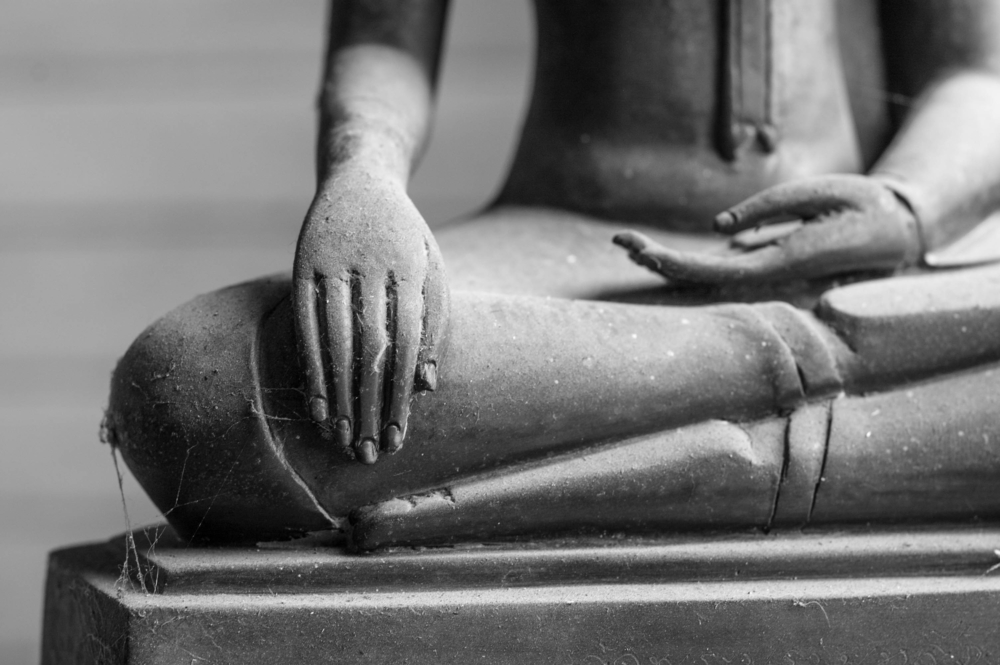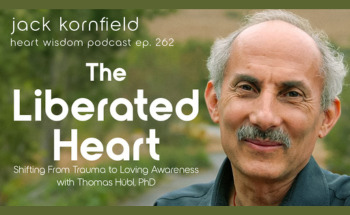In a healthy response to pain and fear, we establish awareness before it becomes anger. We can train ourselves to notice the gap between the moments of sense experience and the subsequent response. Because of the particle-like nature of consciousness, we can enter the space between instinct and action, between impulse and reaction. To do so we must learn to tolerate our pain and fear. This is not easy. As James Baldwin put it, “Most people discover that when hate is gone, they will be forced to deal with their own pain.” That’s why we start by paying attention to small things, small pains and disappointments.
To work honorably with anger, we must acknowledge the depth of the Buddha’s First Noble Truth—the truth of suffering. There is pain in our lives, in the world—disappointments, injustice, betrayal, racism, loneliness, loss. As blues masters Buddy Guy and Junior Wells say, “The blues is the truth.” No strategy can keep us exempt from loss and sorrow, sickness and death. This is human life. Even if we try to avoid this truth, it is still true. A Zen saying reminds us, “If you understand—things are just as they are. If you do not understand—things are just as they are.”
What is the medicine that Buddhist psychology prescribes for the suffering of aversion? First we become aware of this force within ourselves. We recognize in our bodies the rigidity of aggression, the pain of rage, the contraction of fear. We become intimate with our frustration, anger, and blame.
Second, we learn the difference between reaction and response. When we’re in a hurry and the toast burns, we can react by fuming or hitting the counter, or we can feel our frustration and put in another piece of bread. When someone cuts us off in traffic, we can angrily retaliate by racing up to them shouting, trying to get back at them, or we can breathe and let it go. When we are criticized, when we are betrayed, we don’t have to reinforce the pain of the situation by adding to the pain by our reaction.
It’s like two arrows, the Buddha said. The first arrow is the initial event itself, the painful experience. It has happened; we cannot avoid it. The second arrow is the one we shoot into ourselves. This arrow is optional. We can add to the initial pain a contracted, angry, rigid, frightened state of mind. Or we can learn to experience the same painful event with less identification and aversion, with a more relaxed and compassionate heart.
Does this mean that we cannot respond strongly? No. Sometimes we need to get up, shout out the truth, march, protest, do whatever is necessary to protect our life and the lives of others. The great exemplars of non-violence such as Gandhi and Martin Luther King Jr. were strategic and skilled in this way. They rallied people, used the courts, broke the law, blocked the way, negotiated, moved forward and back, found allies, and used money, power, shame, speeches, and politics all to stand up for what was right. But they did not act out of hate and violence. This is a powerful example. When self-righteous anger arises, we can let it go. Retaining our own fierce clarity, we too can seek justice, yet do so with a loving heart.
The Buddha urges us to let go of our anger even after extreme difficulties. Here are famous verses from the Dhammapada, the sayings of the Buddha: “‘He abused me and beat me, he threw me down and robbed me.’ Repeat these thoughts and you live in hate. ‘He abused me and beat me, he threw me down and robbed me.’ Abandon these thoughts and live in love. In this world, hatred never ceases by hatred, but by love alone is healed. This is the ancient and eternal law.”






